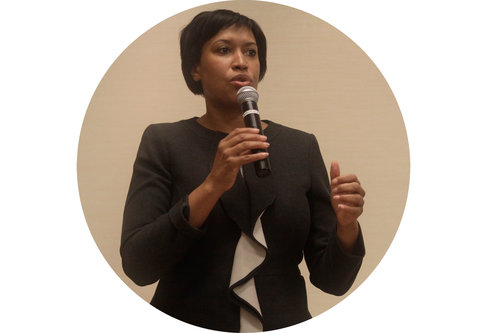
Cynthia Deitch is an associate professor of women’s studies, sociology and public policy.
Is the recent D.C. Democratic mayoral primary defeat of incumbent Vincent Gray by Muriel Bowser a gain for women? Maybe.
To address this question, we have to look deeper into interactions among race and class and gender in the context of D.C. politics.
Progress for women is not only about more women at the top, but also improving opportunities for women of all backgrounds at all levels. The District has a high concentration of educated professional women but also one of highest levels of income inequality and of single mothers living in poverty.
Because women earn less than men on average, policies that affect economic inequality such as affordable housing, child care, health care, a living wage and paid sick leave help women, especially low-income single mothers.
This means that any economic and social welfare policies enacted under the next mayor may have deeper ramifications for the District’s women. Hopefully Bowser will seize the opportunity to make real, long-lasting change.
The power of the mayor is limited, especially given Congressional veto power over D.C. local legislation. To improve the lives of women, Bowser would need to pay greater attention to the needs of residents in the least affluent, predominantly black sectors of the city despite the fact that her primary election results were weakest in those areas.
If Bowser goes on to win the general election, she will double the number of African American women who are sitting mayors in the 100 largest U.S. cities. Women of all races were only 7 percent of the mayors in large cities as of 2010, according to the Rutgers’ Center for American Women and Politics. With numbers that small, every additional woman in office is at least a symbolic gain for women.
Symbols do matter, but women in D.C. also need substantive policies that will reduce economic disparities and improve their lives.




